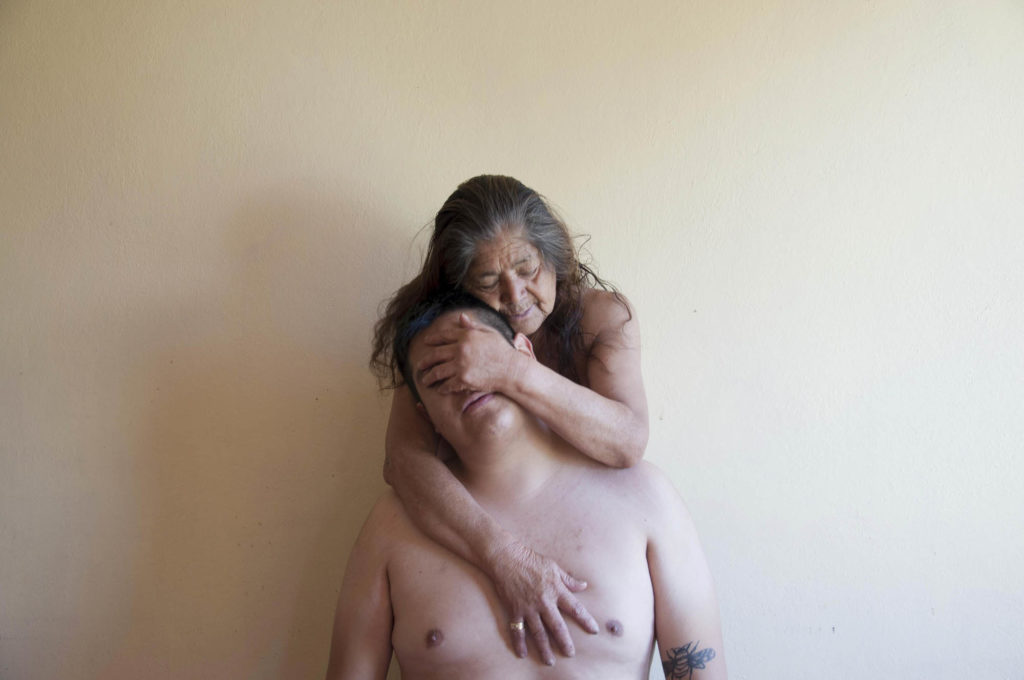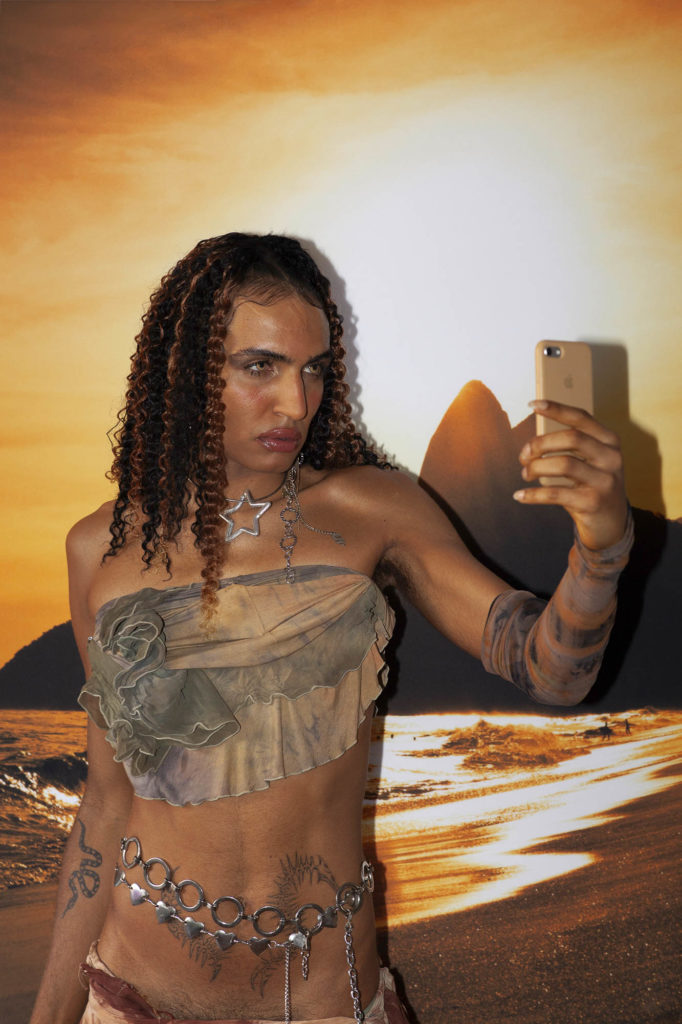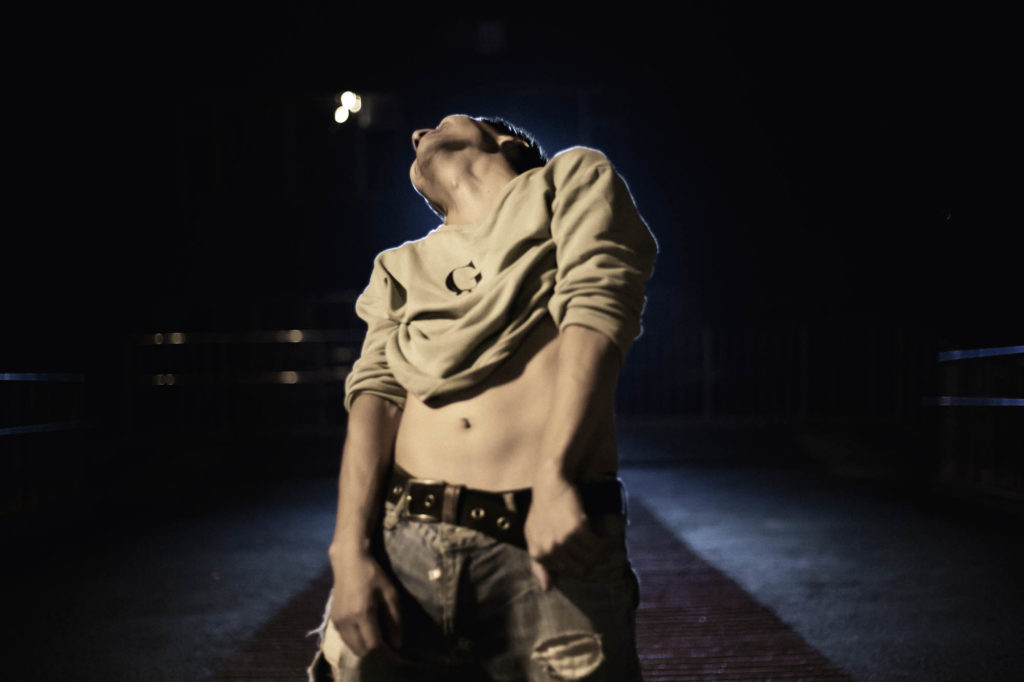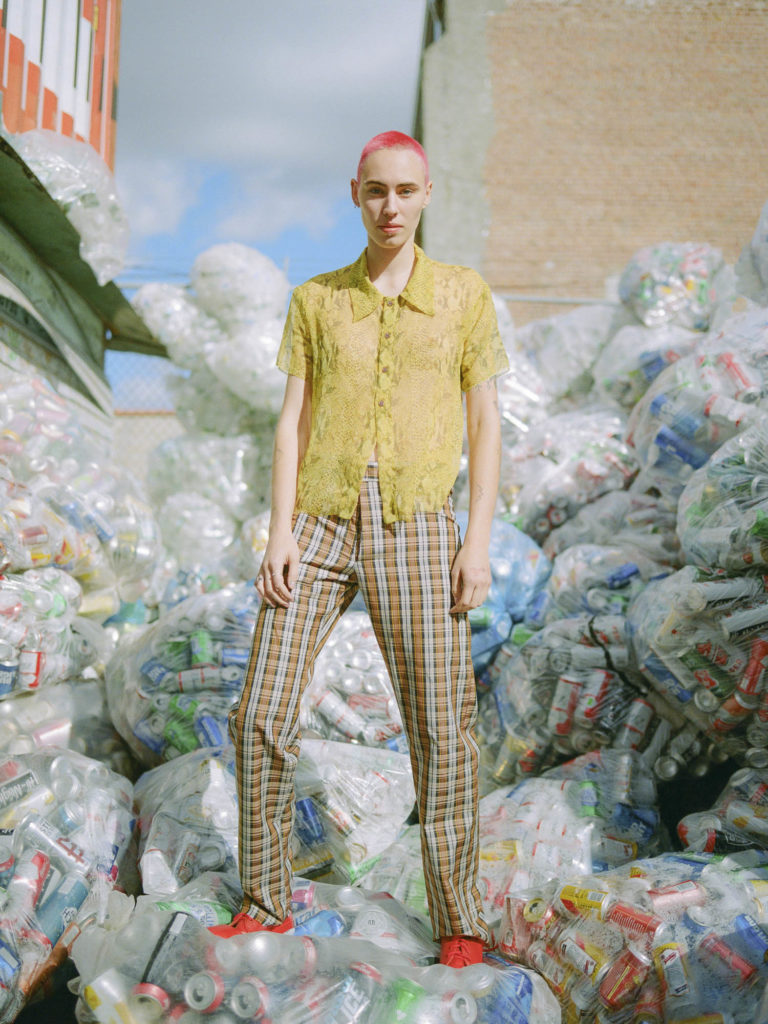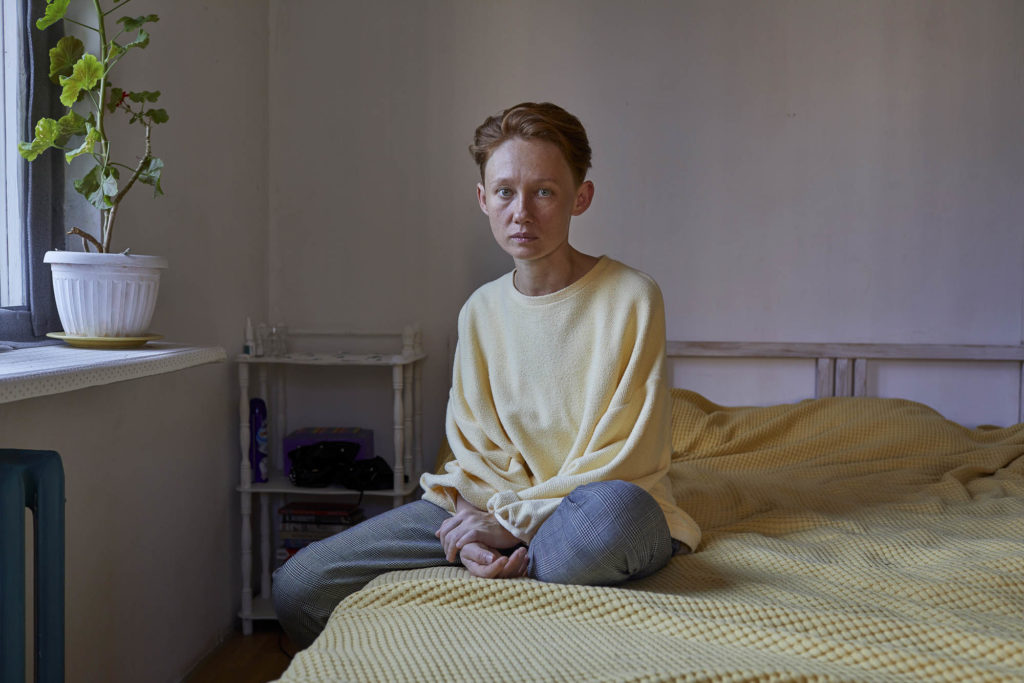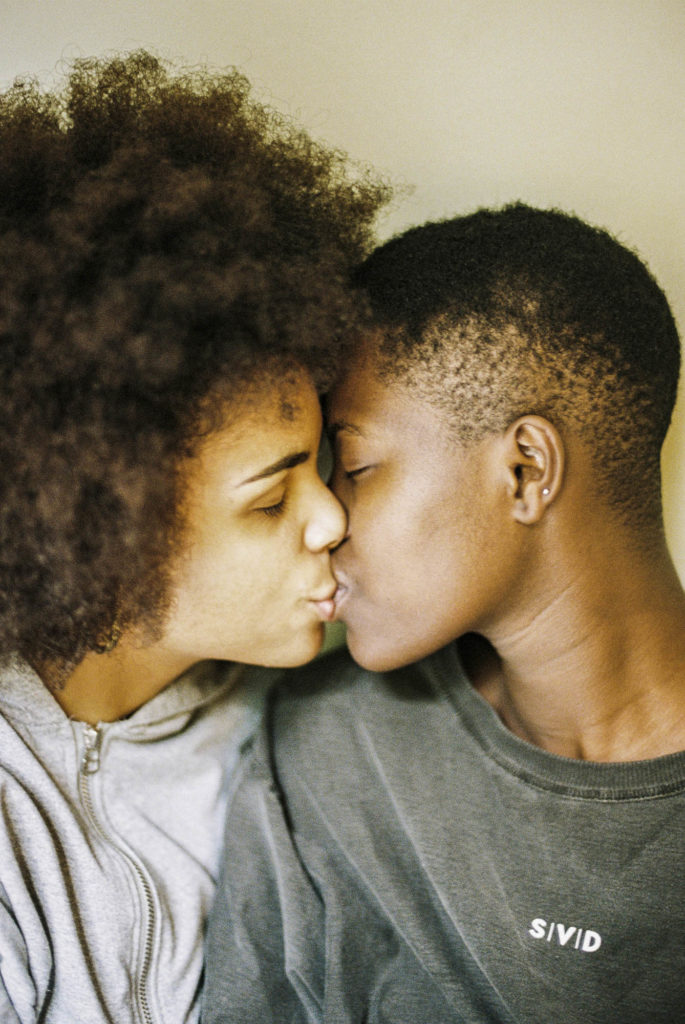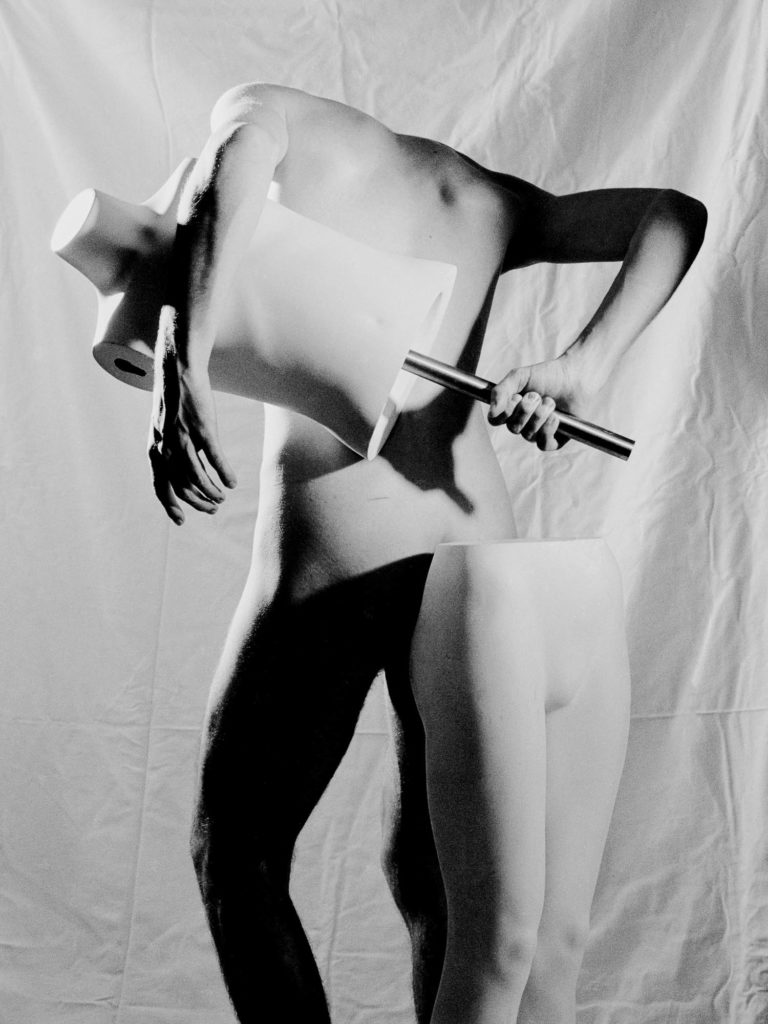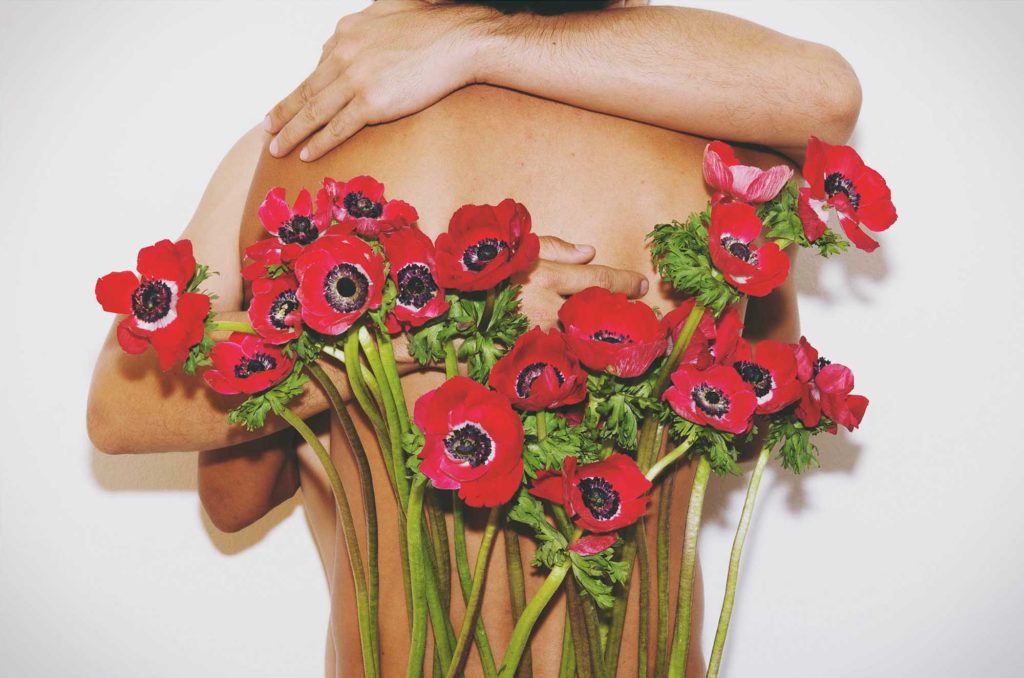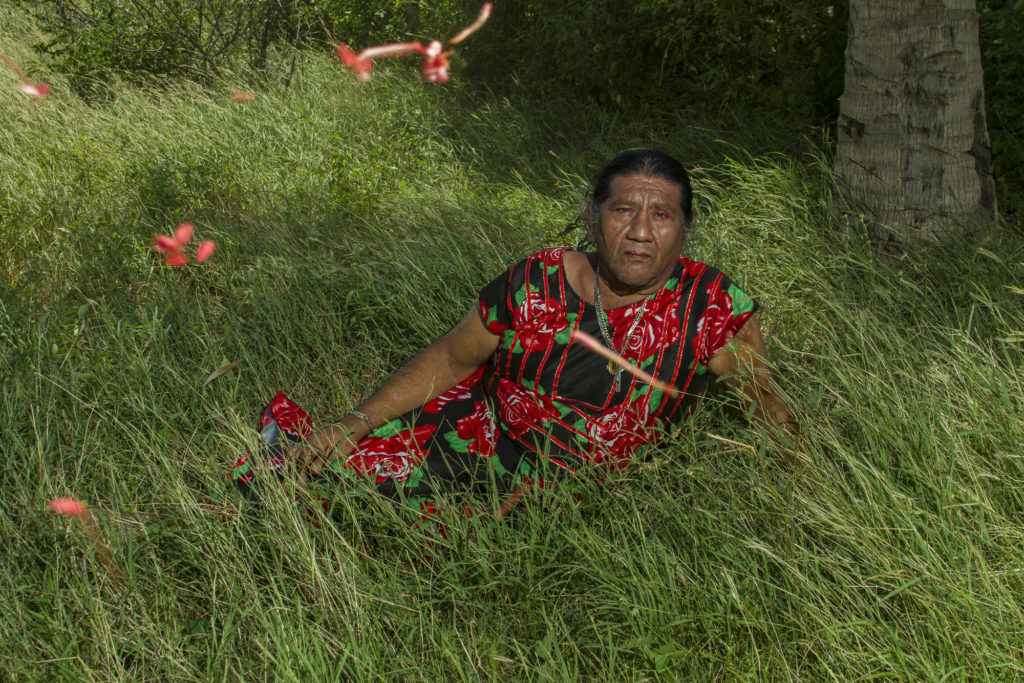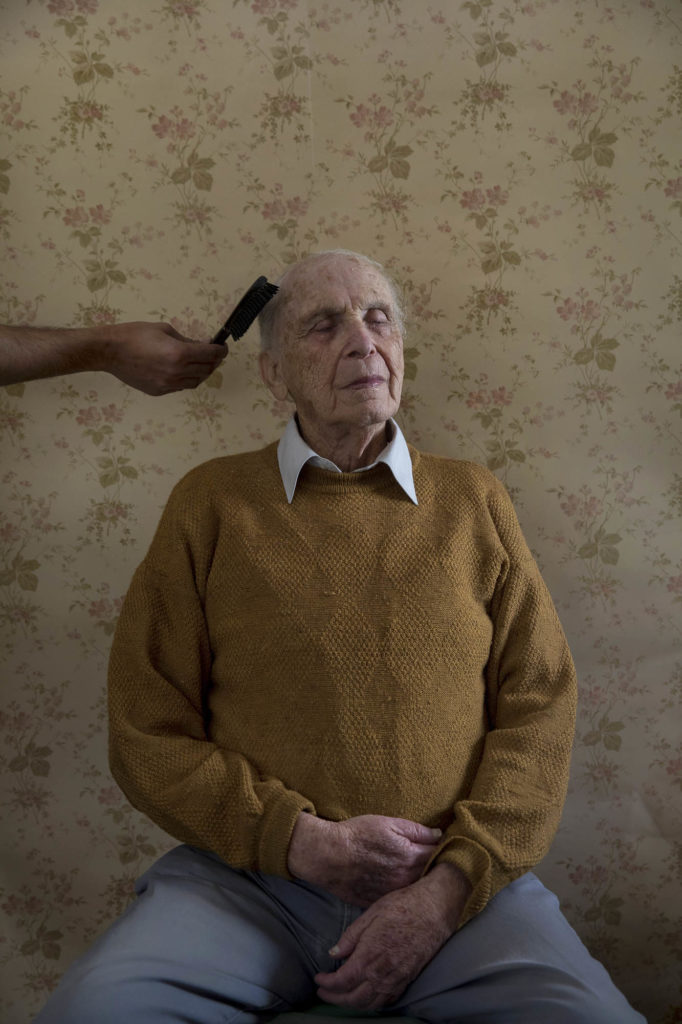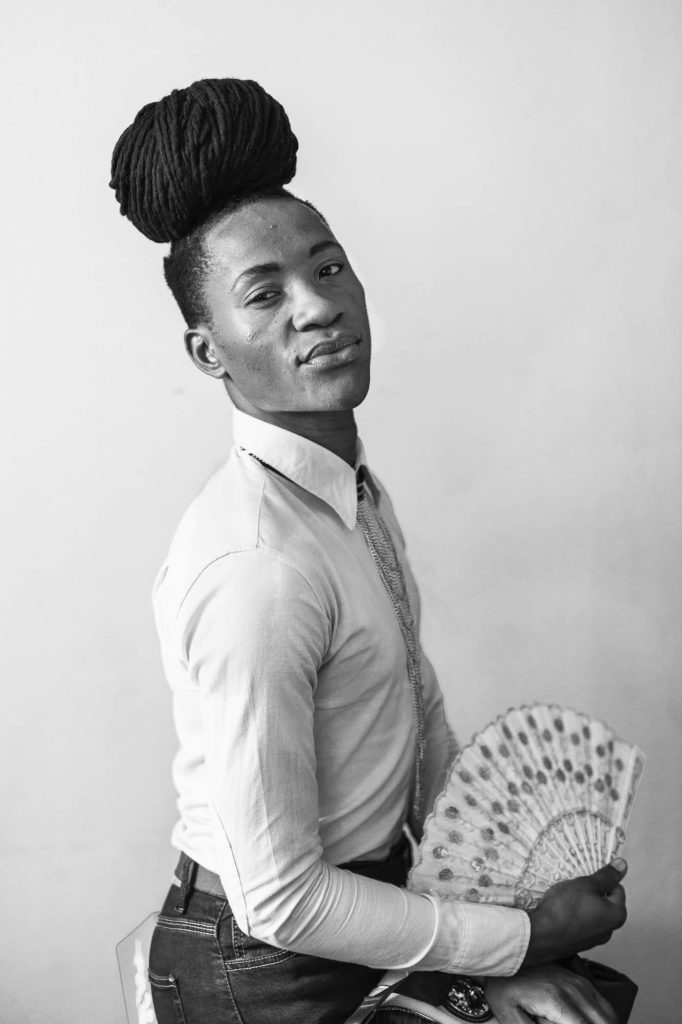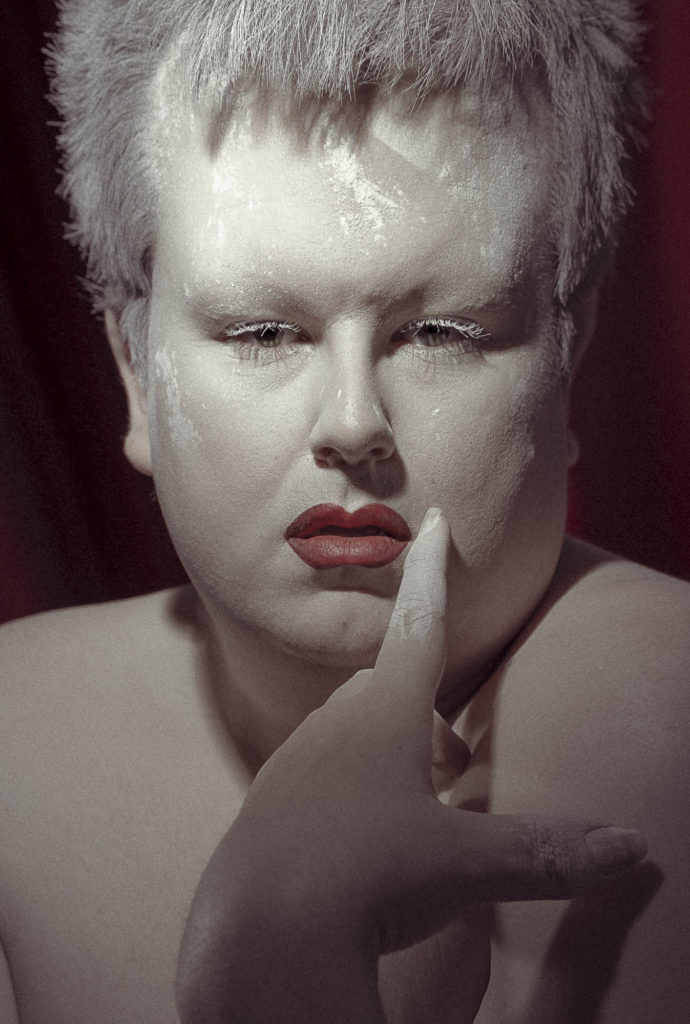This project investigates the concept of ordinary monstrosity, unravelling the boundaries between what is thought of as normal and abnormal. Since the 19th century the staging of “freaks” was essential and images were manipulated to play a vital role in reinforcing the norm. Today we still hold on to the binary ideas of beauty, actively distinguishing between what is normal and abnormal, sick and healthy, beautiful and ugly. In my work I deconstruct these ideas. Monstrosity exists within all of us. Through self-representation and the use of my own physical body, I fabricate monstrosity out of simple things surround me, and I rather embrace than reject it. My Work is a love letter to the abnormal, a renunciation of being normal. It is a refusal to comply to the heteronormative gaze, an attempt to become fearless, to be free, finally. It is a way of shouting: Thank God I am a faggot!
